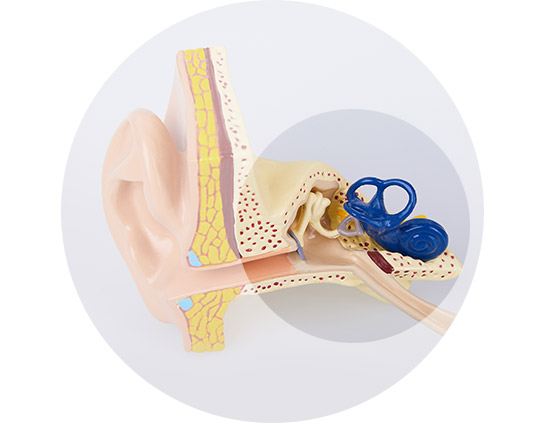Age Related Hearing Loss (Presbycusis)

What is age-related hearing loss?
Age-related hearing loss (or presbycusis) is a form of hearing loss that occurs gradually during the aging process. Usually, this type of hearing loss affects both ears. Depending on certain factors, age-related hearing loss can start in a person's thirties or forties and usually increases gradually over time.
It is one of the most common conditions affecting older and elderly adults.

.png?rev=c53a4190df2a41f4921267cde5d8c096)
Book a free test for age-related hearing loss
What causes age-related hearing loss?
The main cause of age-related hearing loss is ageing. Most commonly, it arises due to changes in the inner ear as you grow older. The factors that can have an influence on age-related hearing loss are the following:
- Genes
- Certain medical conditions
- Side effects of certain drugs and medications
- Age
- Smoking
- Repeated exposure to loud noises
Did you know?
While men are more likely to develop a hearing loss in higher frequencies, women often have hearing loss in lower frequencies.
The frequency of your hearing loss refers to whether you are having trouble hearing high-pitched or low-pitched sounds.
6 common symptoms of age-related hearing loss (presbycusis)
The signs and symptoms of age-related hearing loss can vary from person to person, but some of the most common symptoms include the following:

How is age-related hearing loss treated?
The best treatment option for someone with age-related hearing loss (presbycusis) will depend on the person's overall health, age and the severity of the hearing loss.
The most common treatment for age-related hearing loss is hearing aids, but the treatment may also include using assistive devices and/or learning lip reading techniques.
How can you protect your hearing as you age?
Since age-related hearing loss is irreversible, prevention is important. Below are some of the most effective ways to prevent it:
- Avoid (or reduce exposure to) excessively loud noises
- Avoid smoking
- Seek treatment for hearing health conditions (such as ear infections)
- Wear ear protection in loud environments (ear plugs, earmuffs)







